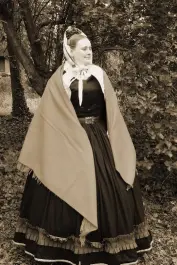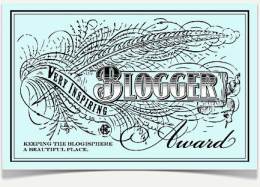Moore’s Rural New-Yorker
February 2nd 1861
Over-Dressing, Again
It is well that the Rural has opened its pages to discussion upon this subject, for extravagance in dress has become the national sin of American women, and notwithstanding Linda’s spirited defense, they are without excuse.
The fact that husbands are often bought by an expensive toilet, is the very reason that over-dressing should be avoided, for what true women would wish to marry a man who wedded only for wealth. However, that class is small which, in seeking a bride, places of wealth before personal attractions, and when introductions are solicited to “that little butterfly of a coquette, made radiantly beautiful by silks and laces,” in nine cases out of ten it is something in the look, word, manner, or in the taste displayed that is the chief feature of attraction; and, generally speaking, an elaborate and showy wardrobe does little to assist in gaining admiration. On the contrary, (if we dress to please the gentlemen,) they must often be displeased, if not disgusted at the low standard by which we judge their taste in our extravagant attire. I am sure they would be better pleased, if the fair ones used a little more common sense, becoming women of America in the nineteenth century.
Linda says that “personal beauty is rarely appreciated, except it be assisted with the elegance of dress.” In good society at present, personal beauty in simple but tasteful array in appreciated more highly than plainer features associated with rich apparel. But few things have a great bearing upon our success in society than dress, which depends not so much upon its elegance, as its grace and fitness. Expensive attire may usually be dispense with, but taste and neatness can never be omitted. I know a beautiful lassie who was woed and won in a corn-colored print, and whose suitor was highly educated and refined, moving in the first circles in our great metropolis. Her beauty was none the less appreciated because of her simple dress. Vulgarity is often clothed in a silken garb, but refinement cannot be mistaken in tasteful though unassuming garments.
“And often the chief attraction of the handsome face is dependent on some peculiarity of style, or shade of color in dress, which is made the subject of study by those who know the secret of their power in society.” It is the duty and privilege of woman to make her dress a subject of study, and adopt that which is most becoming. Every delineation of form and feature should be taken into consideration, and from among the great variety of styles in fashion, that one selected which will enable her to appear to the best advantage. Expensive and superfluous dress is not necessary to produce a pleasing effect. It is good judgement and skill in every department of the toilet, however minute. If I were to appear an evening in company with a view to charm an ideal admirer, I should certainly choose the dress which would give the best effect, though it were of plain material, rather than the most elegant, if it were deficient in any particular. Let the clothing be fashionable and faultless, but it need not be superfluous to be admired.
Certainly, American gentlemen do not prefer the stolid English, the phlegmatic German, or the plain features of the French, to our fair and spirited women, with all their sin of dress; but if the dear little wife who presides in the sweet vine-wreathed the sober colors of the English, would study more perfectly the true science and art of dress, in which the French excel, she could, with less inconvenience, be arrayed becomingly in the style her husband most dearly loves to see, which is oftener the tidy print, or the robe of plain material. Is it not, gentlemen? As we like to please the fastidious of the other sex, let us hear their views upon this important subject.
Jane E. Higby. Piffard, N.Y., Jan., 1861
For the continued disucssion of dress and over-dress, please click: Following the question








Leave a comment